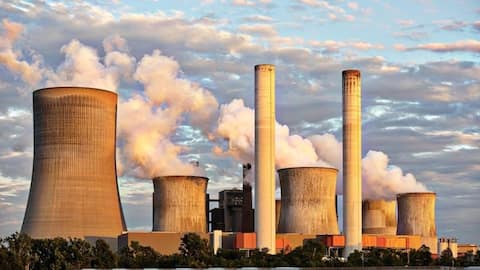Methane emissions skyrocket globally, study warns of consequences
What's the story
A recent international study has unveiled a rapid rise in global methane emissions since 2006, with a notable surge observed from 2020 onwards. The research, spearheaded by physicist and climate specialist Drew Shindell of Duke University in the US, warns that this trend is likely to persist unless significant action is taken. The study also offers strategies for nations to tackle this issue and introduces an online tool designed to assist in these efforts.
Emission sources
Fossil fuels and climate change fuel methane emissions
The study attributes the escalating methane emissions primarily to the persistent use of fossil fuels over cleaner alternatives. Methane is directly produced by oil, gas, and coal drilling and processing. Moreover, a hotter climate leading to an increased release of methane from natural wetlands is also contributing significantly to this rise. While other sources like landfills, thawing permafrost, and livestock are currently minor contributors, they require close monitoring due to their large cost-effective mitigation potentials.
Methane impact
Methane's role in climate change and health risks
The study underscores the importance of addressing all major climate pollutants, including methane, due to humanity's inadequate response to climate change over several decades. Despite its lower atmospheric concentration compared to carbon dioxide (CO2), methane is a more potent greenhouse gas. It significantly contributes to global warming by trapping heat similarly to CO2 and plays a role in the formation of ground-level ozone. This increases the risk of death from respiratory illnesses and cardiovascular diseases.
Mitigation strategies
Urgent call for methane reduction targets and new policies
The researchers emphasize the urgency of addressing all methane sources and propose that methane reduction targets should be implemented alongside CO2 reduction targets. They advocate for the introduction of new technologies and policies to combat this issue. They emphasize that reducing methane emissions rapidly this decade is crucial for slowing near-term warming, preventing significant overshoot by mid-century, and maintaining achievable low-warming carbon budgets.
Mitigation costs
Cost-effective methane mitigation and need for regulatory changes
The study highlights that mitigating methane emissions is often more cost-effective than dealing with the consequences of climate change. The researchers urge governments and organizations to shift their thinking and have developed an online tool to aid in methane emission mitigation. They state that while many mitigation costs are relatively low compared to real-world financial instruments and significantly lower than methane damage estimates, legally binding regulations and widespread pricing are necessary to promote the adoption of even negative-cost options.
